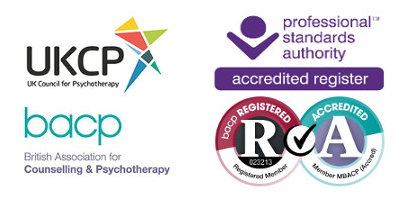Counselling for Victims of Workplace Bullying & Harassment
Learning to take control and dealing with bullies at work
- Are you being treated less well than your work colleagues?
- Are you the butt of someone’s anger or cruel ‘humour’ at work?
- Do you feel manipulated?
- Are ‘performance issues’ misinterpreted or blown out of proportion?
- Do you have a nagging feeling that someone in a senior role is targeting you?
- Are you continually ridiculed or even openly harassed by another member of staff?
- Have you become afraid of going to your office, or are you losing sleep over these things?
If it’s ‘yes’ to any of these, you could well be a victim of bullying in the workplace. Counselling for workplace bullying and harassment can help you develop the most effective tools for dealing with the situation.
What is workplace bullying?
You might not realise you’re being bullied at first – it can creep up on you. If you’re worried about being isolated from your colleagues, singled out from the team, constantly blamed or under threat of some coercion or discipline, the likelihood is you’re suffering from workplace bullying.
Once they have developed, the bully’s passive aggressive behaviours often form part of a larger pattern of bullying and harassment that includes outright aggression. Workplace bullying can involve:
- Shouting, intimidation and making threats
- Name calling or insults
- Spreading malicious rumours
- Denying holidays or training opportunities for no reason
- Being micro-managed
- Constant nit-picking and fault-finding
- Not giving appropriate credit for good work
- Undermining your authority or belittling you in front of co-workers
- Not including you in workplace conversations or activities
- Setting unrealistic goals (a type of covert, passive-aggressive attack)
- Repeatedly taking away meaningful work in favour of menial tasks
- Handing you an unfair share of workload or not enough of the work
- Depriving you of career development opportunities or withholding promotion
- Increasing your responsibility while reducing your authority
- Restricting personal communication (perhaps using email only, for no reason)
- Withholding information to prevent you from doing your job properly
What effect does workplace harassment have on a victim?
Whether it’s you or a work colleague that’s being bullied, some of the symptoms to look out for in victims of bullying in the workplace are:
- Loss of appetite
- Eczema and other skin complaints
- Difficulty sleeping
- Severe fear of going to work
- Palpitations or panic attacks
- Depression
- Suicidal thoughts
- Relationship problems
- Anxiety
- Low self-esteem
- Irritability
How can you spot a “workplace bully”?
- A supportive manager will look at all the potential reasons for poor performance in a staff member. A sign of a bullying manager is that he or she will make no attempt to do this, but will rush to blame.
- A caring manager will be a good listen The bully will regularly ignore, override or dismiss anything you have to say.
- A bullying manager imposes new standards without discussion. A good manager will agree a new system of working with their team before imposing it on all staff.
- A bullying manager will not agree standards and will appraise staff according to their own secret criteria so you and your work colleagues are left in the dark. A positive manager will involve team members in agreeing on monitoring processes and outcomes.
- A good manager will recognise improvements in performance and behaviour. A bullying manager will ensure that it is impossible to tell when standards have improved, so rewards and recognition are random and open to favouritism.
Why do people become bullies in the workplace?
People may exhibit bullying behaviours if they feel someone poses a threat to their position or status. They may attempt to bully someone to divert attention away from their own shortcomings. If a workplace fosters a particularly competitive atmosphere, it could be that the bully has correctly ascertained that they will be rewarded for harsh and aggressive behaviour.
Some bullies don’t appreciate the impact their behaviour has on their victims, and many think of themselves as protectors. In fact, they may have a healthy protective impulse that has become distorted and unhealthy.
In the early stages of being bullied at work, the victim may try to placate the bully by working harder or by complying with their demands, however unreasonable. Unfortunately, this adds fuel to the fire, because the bully learns they are in control, which satisfies a craving in them.
How counselling for workplace bullying can help
If you have become the victim of bullying in the workplace, the aim of counselling is to increase your self-confidence and calm, in order that you can address problems in the work environment effectively and confidently, whether that means, for example, confronting the bully, or reaching out for support, or preparing a legal case.
Behavioural therapy techniques like “somatic experiencing” alter the base level of calm in your mind and body, and improve the sense of perspective and clarity in the rational part of your brain, so that you feel enabled and empowered to ‘fight your corner’ or, if it’s the more appropriate decision for you, to quit the job and move on to a better position.
Techniques such as Pesso-Boyden Therapy or PBSP engage with the parts of the brain and personality that may have unconsciously stood in the way of you defending yourself from harassment at work or blocked your path to self empowerment.
Being bullied or harassed when all you want to do is get on with your work can be distressing and damaging to your health and your career.
Take control of the situation and contact Marcus to discuss Counselling for Workplace Bullying and Harassment.
Further information, Articels & Advice about and coping with Bullying and Harassment in work
WikiHow | A good article and advice on “How to deal with workplace bullying and harassment”
CIPD | The Chartered Institute of Personnel and Development is a professional association for human resource management professionals has developed: Bullying at Work | CIPD guidelines for managers
Bullied by the Boss | A blog with interesting posts on work life … Especially Bullying
MIND | A guides developed by Mind.org on Workplace bullying
Harley Therapy | A useful article on being the subject of and coping with Workplace Bullying



